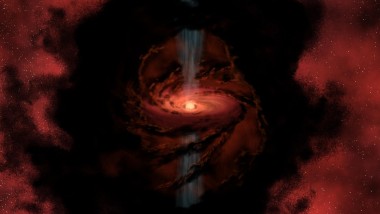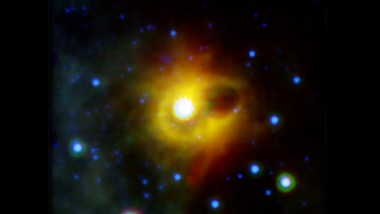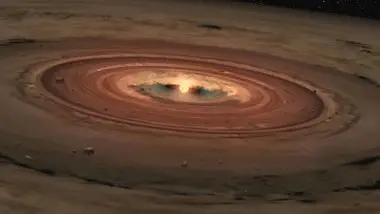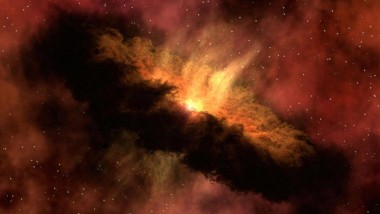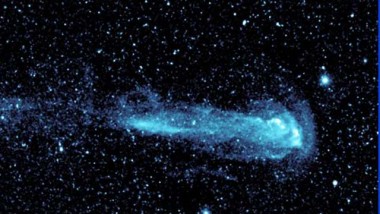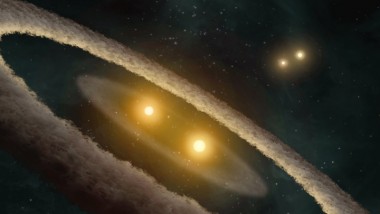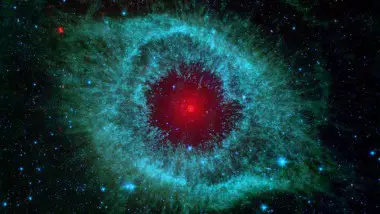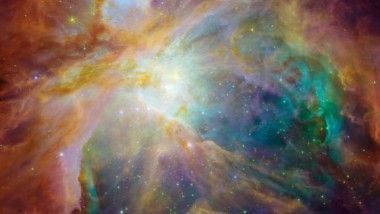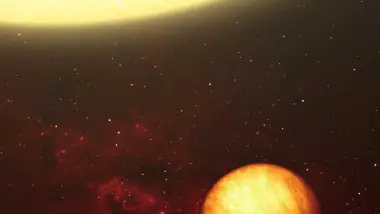NASA has recently released images of a baby brown dwarf, captured by the Spitzer Space Telescope. The object, which is a unique kind of a star, might be the youngest brown dwarf ever observed; therefore, scientists hope it could shed ...
Strange Ring Found Circling a Dead Star
NASA’s Spitzer Space Telescope has detected an unusual ring of material surrounding the magnetic remains of a blasted star. The stellar ‘corpse’, called SGR 1900+14, belongs to a class of objects known as magnetars, which are the cores of massive ...
Building Blocks of Life Found in Space
Using NASA’s Spitzer Space Telescope, U.S. researchers have discovered large amounts of simple organic gases and water vapor in a possible planet-forming region around an infant star. The scientists found even more water surroundings two other young stars in the ...
Water Spirals around a Newborn Star
NASA’s Spitzer Space Telescope recently detected tremendous amounts of water vapor inside the accretion disk of a newborn star approximately 1,000 light-years from Earth. The new observations show for the first time how water, a basic ingredient for life as ...
Star Tail
NASA’s Galaxy Evolution Explorer (GALEX) telescope was able to take a unique picture of a star with a comet’s tail. The star, named Mira (from the Latin term for “wonderful”), is moving through space at an unusual speed of 468,319 ...
Planets with 4 Suns Discovered?
NASA’s Spitzer Space Telescope recently discovered what might be the first planetary system with four Suns. The quadruple-star system known as HD 988000 is approximately 10-million years old, and is located 150 light-years away from Earth (fairly close in astronomical ...
“Eye of God” made of Comet’s Dust
Scientists using the Spitzer space telescope discovered that the dust surrounding the Helix nebula, also known as the “eye of god” due to its unique eye-like appearance, is the result of comets smashing into each other in the outer fringes ...
Telescopes Record New Babies on Orion
This magnificent picture is a composite of infrared and visible-light images taken from NASA’s Spitzer and Hubble Space Telescopes and shows stars being created 1,500 light-years away from Earth in a cosmic cloud called the Orion nebula. The Orion nebula ...
Weather on a Different World Discovered
NASA’s Spitzer Space Telescope has made the first measurements of the day and night temperatures of a planet outside our solar system. The infrared observatory revealed that the giant, gaseous, Jupiter-like planet revolving around its nearby sun is always as ...

